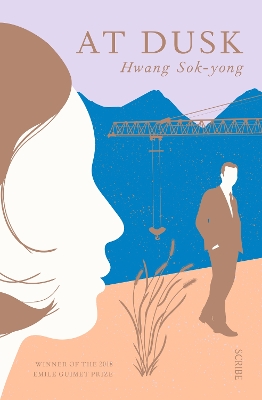Reviewed by Michael @ Knowledge Lost on
At Dusk is a quiet exploration into the life of a modern Korean businessman and his success, but it also reflects on the modernisation of Seoul. It is an obvious allegory; while Park doubts his success is the true meaning of a well lived life, the author begins to question the modernisation of Korea. The cost of progress really is the driving force behind the novella. As a Westerner, I feel like we are led to believe that all progress is good. The US goes to war with many countries because their values are different. We are forcing westernisation onto the rest of the world, and we are led to believe this is for the good of the country. However, it is books like At Dusk that often help me explore a different argument.
Park Minwoo’s family lived a simple life running a small business, while Cha Soona’s parents were noodle makers. Modernisation means the end of these small businesses. Mass production and making money is the only thing of value. Noodle houses quickly become franchised coffee houses. The Korean culture is dying, leaving only Taekwondo and K-Pop behind.
This was a simple little novel, just a quiet yet urgent meditation on the effects progress has on its people and their culture. I feel the author could have done more but I have heard that Park Minwoo appears in other Hwang Sok-yong books. While it is longlisted for the Man Booker International Prize, I cannot see it making the shortlist. This feels more like a quick read the judges put into the list to get people to think more about the topic of westernisation and progress, what it means to the people, the country and also their culture.
This review originally appeared on Translated Lit: http://translatedlit.com/reviews/review-at-dusk-by-hwang-sok-yong/
Reading updates
- Started reading
- 13 March, 2019: Finished reading
- 13 March, 2019: Reviewed
